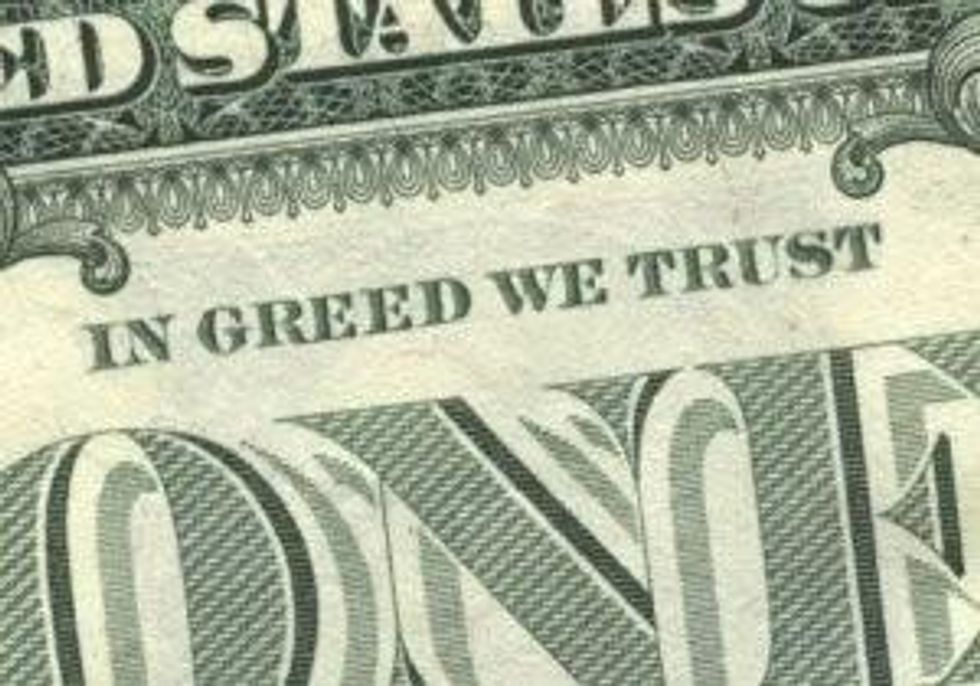If the deficit hawks in Congress are serious about righting our economic ship and reducing deficits in the federal budget and many state capitols, it would we worth listening to the voices rising from the streets suggesting a very different solution than more cuts in safety net programs, education, pensions, and worker's rights.
This is not a budget fight, it's a fight for the future of an America in which everyone should be able to retire in dignity, not worry about whether they can go to the doctor when they get sick, or whether there will still be schools for their kids.
How will we pay for it? By increasing the revenues from those who can most afford it, not by punishing those who have the least. By requiring corporations and the wealthiest individuals to pay their fair share, and stop blaming working people for an economic crisis created by Wall Street and exploited by their politician acolytes.
We've all heard the arguments. Pass more corporate tax breaks because that's what makes the economy grow. Except it doesn't.
Corporate profits per employee are at record levels. At $1.6 trillion, third quarter 2009 corporate profits were the highest ever recorded. Yet official unemployment still hovers near 9 percent, and the real jobless number is probably double that. Whatever big corporations are doing with their record profits, they are not hiring more workers.
Or the argument that our 35 percent corporate tax rate is one of the highest in the world. Except few if any major corporations pay anywhere near that amount. Half of foreign companies and about 42 percent of U.S. companies paid no U.S. income taxes for two or more years from 1998 to 2005, according to a recent Government Accounting Office study.
How do they accomplish this? Pages of corporate tax loopholes that render the supposed tax rate meaningless, loopholes not available to the average working family.
Who are some of those tax scofflaws? Bank of America and Citigroup, two of the financial institutions that, unlike workers did actually create the financial meltdown, paid no taxes in 2009. Boeing, just awarded a new $35 billion contract by the federal government to build airplanes, also paid no taxes between 2008 and 2010 despite recording $10 billion in profits those year, reports Citizens for Tax Justice.
Where's the shared sacrifice from these corporate giants? Not from General Electric which, as the New York Times reported March 24, made $14.2 billion in profits in 2010, but paid no U.S. taxes, and was rewarded with the appointment of their top executive to head President Obama's Council on Jobs and Competitiveness. Apparently paying no taxes is a model for how to be competitive.
Then there's the wealthiest Americans who won a two year extension on tax breaks in December and also profited from the near elimination of estate taxes, at a time when the richest 5 percent of Americans control 23 percent of total income, compared to just 12 percent for the 40 percent at the bottom.
According to Merrill Lynch Global Wealth Management and Capgemini Consulting, there were about 3 million high net worth individuals and ultra high net wealth individuals in the US in 2009, those with investable assets, excluding primary residences and consumables, of from $1 million to $30 million.
Calculations by the Institute for Health and Socio-Economic Policy, research arm of National Nurses United, shows that a one-time wealth surcharge of 14% on those assets would more than pay for the $1.6 trillion budget deficit projection for 2011. Or, it would support about 33.8 million households at the national real median income level for 2008, pay for a year's worth of AIDS medication for about 142 million patients, or create 34 million jobs at $50,000 per year.
In other words, we could more than balance our federal and state budgets without cutting Social Security or slashing pensions for public servants or depriving students of access to a decent education or far too many Americans of access to healthcare.
Turn off the Fox News echo chamber and you can hear the sounds of those calling for economic justice and a more fair tax system every day in the streets of Madison, Columbus, Indianapolis, and other cities across America. They have opened a door that will not be closed, and their voices are getting louder.

